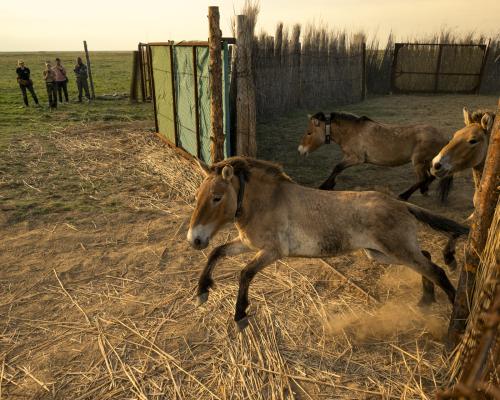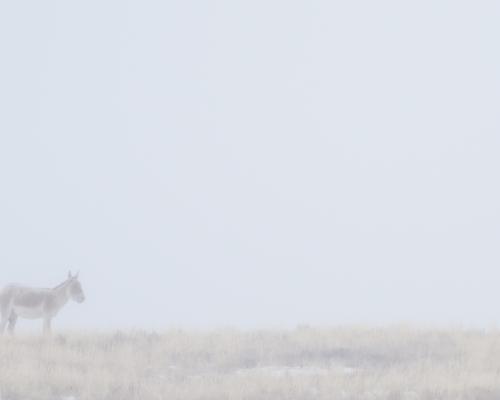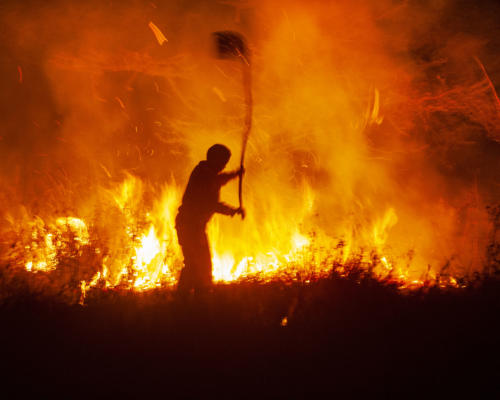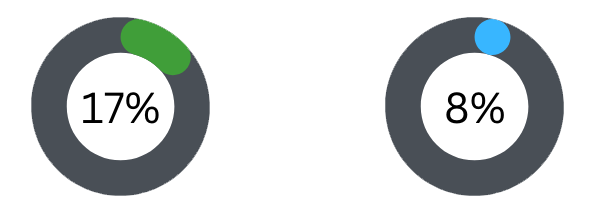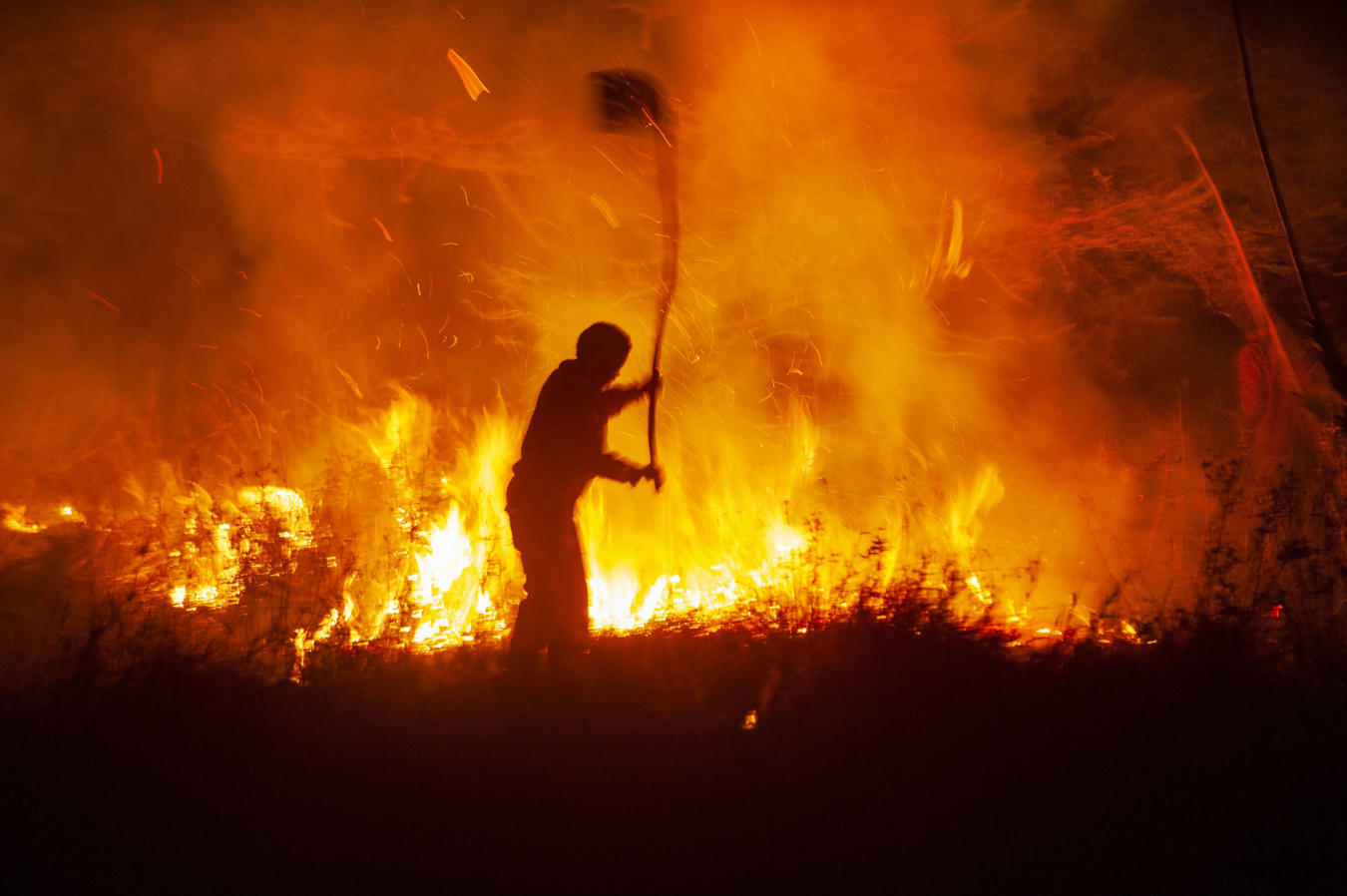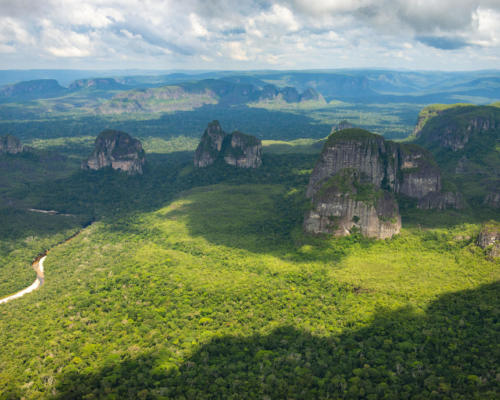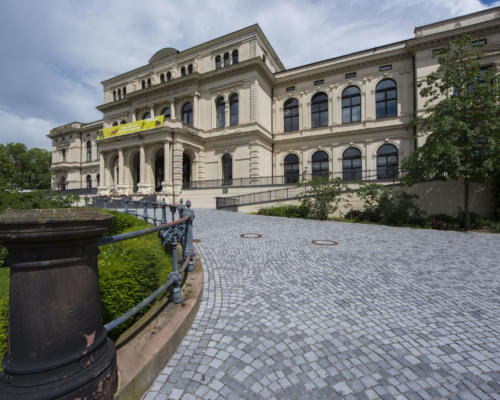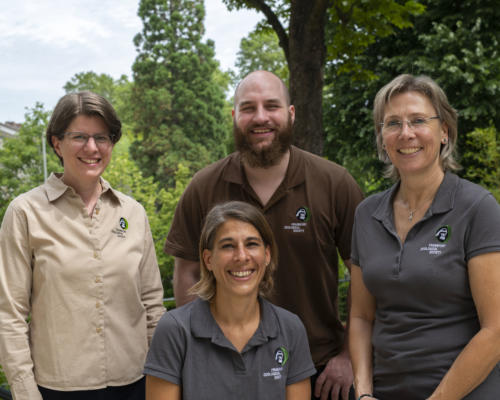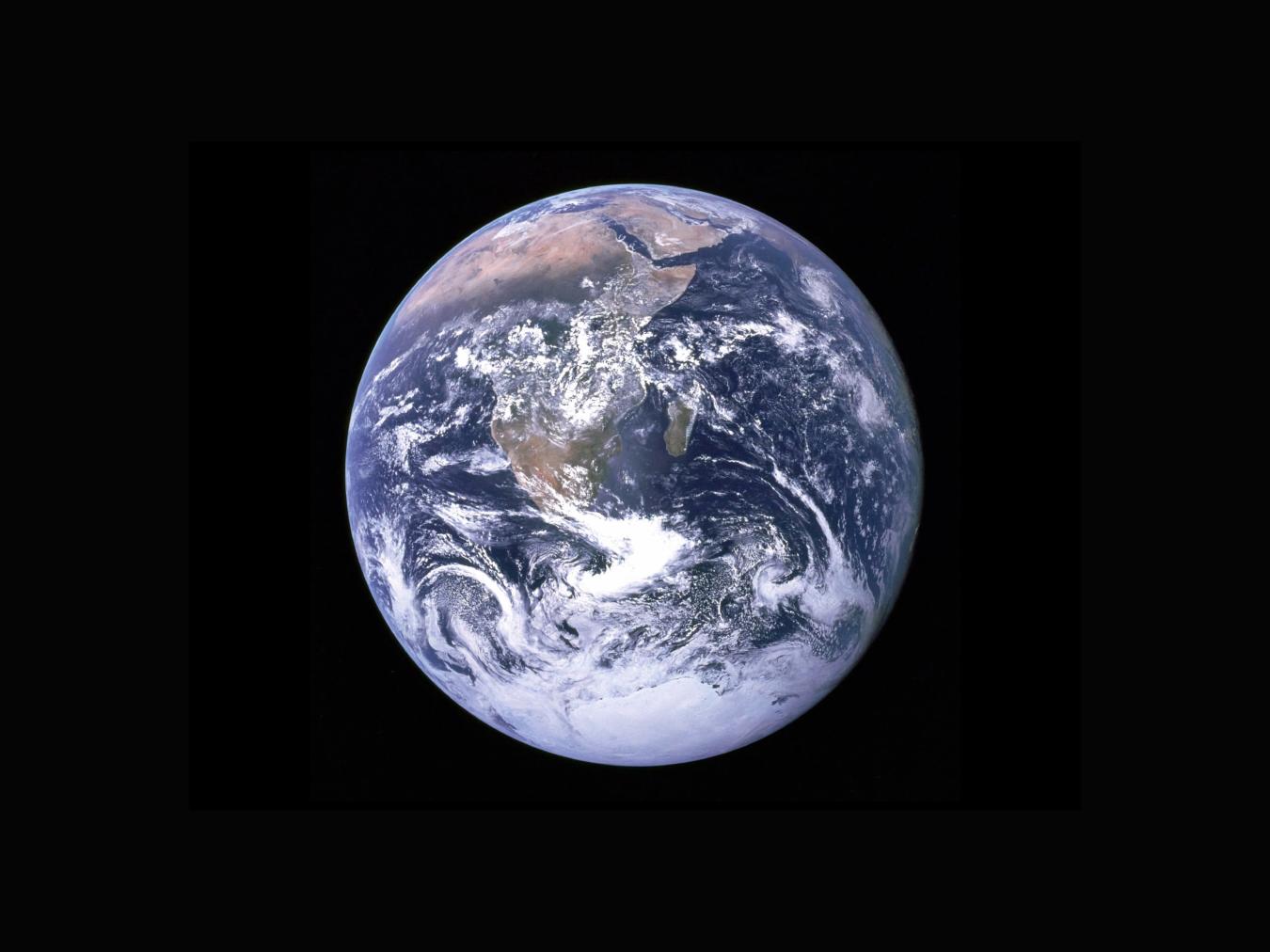
Last summer was exceptionally hot and dry – once again. New temperature records were set in Germany. Gardens were parched, and water was scarce in some communities. The planet is changing before our very eyes.
Here in Central Europe there is still much we can do to compensate for this. We can decide whether or not we water the flowers or buy bottled drinking water. But the changes will be far greater and the price much higher if we carry on as before. We are in the midst of two major crises that mutually reinforce one another: climate crisis and loss of biodiversity.
Biodiversity is being lost at a greater rate than at any time since the last ice age. We are basically in the midst of Earth’s sixth mass extinction. Roughly one million animal and plant species are threatened with extinction. We – and our rapid destruction of nature – are to blame. The increase in the average global temperature is a further cause.
Many scientists believe that we have less than two decades in which we can influence the scale of the catastrophe. This time frame is set by the state of the climate-critical systems on Earth, such as the glaciers and rainforests. If we destroy these systems to the point where they are irreversibly damaged, the global climate, too, will change, bringing about unimaginable consequences as a result.
But there is also some good news. We humans can also be part of the solution. We at the Frankfurt Zoological Society are convinced of this. And one solution is already known. If we manage to protect large areas of wilderness, we can make a decisive contribution to mitigating the crisis. And that’s what we and our teams are working on.
Wilderness areas are large and in most cases unfragmented areas of unused land where natural processes are allowed to take place uninfluenced by humans, on a permanent basis.
Especially in tropical regions, but also in Europe’s large forest areas, they provide habitats for countless species and supply oxygen, clean water and food. They are carbon reservoirs and treasure troves of nature, containing an invaluable wealth of biological information which can be used for nutritional, technological, medicinal and cultural purposes.
We need wilderness more urgently than ever. A UN study found that we can save 88 percent of the species included in the study from extinction if we succeed in doubling the global area of nature reserves by 2030 to cover 30 percent of the land and ocean area. This will prevent more than 500 gigatonnes of carbon dioxide being released into the atmosphere and significantly reduce the risk of pandemics, as novel diseases primarily emerge in degraded ecosystems. More than 100 countries have already joined the call of the Wyss Campaign for Nature to place 30 percent of the planet under protection.
The call to protect 30 percent of the planet by 2030 is based on the latest scientific findings. You can find an overview of relevant research results on the Wyss Campaign for Nature website, including studies on economic efficiency, compatibility with indigenous rights, human health, nutrition and other factors.
An international alliance of scientists, institutes, foundations and conservation organizations is supporting this demand. These include the IPBES (Intergovernmental Science-Policy Platform on Biodiversity and Ecosystem Services) and the IPCC (Intergovernmental Panel on Climate Change).
Up to one million species are threatened with extinction. Not since the age of the dinosaurs has there been such a loss of biodiversity.
Each species has a long evolutionary history that goes back millions of years. Every single factor which characterizes the different species on our planet is stored in the genes. In a sense, this information is the data on the hard drive of life.
Every day, we make use of natural products or objects that we have copied from nature. Nature provides ingredients for medicines, it is the model for technical innovations, and it is at the heart of human cultural development.
Humans are indiscriminately destroying the data on the hard drive of life at an ever-increasing rate without even realizing what is being lost as a result. Scientists are now speaking of the sixth great mass extinction of species.
Biodiversity refers to the entire range of species on Earth. It encompasses the full variety of species, habitats and genes on our planet.
Biodiversity is also a metric for assessing the abundance of different life forms in particular areas.
Most areas which have a particularly diverse range of species are to be found in the tropical zone, i.e. close to the equator. That is why most of the FZS projects are located there, too.
Every day we indiscriminately destroy data on the hard drive of life.
The Intergovernmental Panel on Climate Change calculates that a rise of just one degree Celsius in the average global temperature will increase the risk of extinction for many more species. According to estimates, climate change could cause the extinction of up to one third of species in Germany alone in the next few decades. Worldwide, ecosystems such as wetlands, coral reefs, mangroves and tropical forests are considered to be particularly endangered – yet these very same ecosystems also represent stable buffers against climate change, which is why it is so important to protect them.
We humans are the cause of all this. Our unrestrained hunger for consumption and growth is the cause of the worldwide overexploitation of natural resources. In short, more and more people are consuming more and more resources. We are the main culprits – the humans in the industrialized nations of the Global North and, increasingly also, the East. We therefore also have a responsibility to support the people in the Global South and the protection of nature and wilderness there.
And that is what we are doing in our projects.
Forests, mires and oceans all perform one of the most important functions for the global climate: they are so-called carbon sinks. That is, they store huge amounts of carbon.
Carbon dioxide is a greenhouse gas. In the Earth’s atmosphere, it prevents heat from escaping into space. Already, the Earth’s ecosystems can no longer cope with the amount of carbon dioxide currently produced by humans. The climate is changing as a result. It is getting warmer.
The consequences are immense. Extreme floods, droughts and rising sea levels are causing dramatic destruction all around the world and costing lives. The economic damage is also colossal. A study carried out by an international insurance company puts the total losses caused by natural disasters in 2021 at $280 billion.
It is becoming increasingly expensive to mitigate the damage. The figure which the G20 countries’ invest annually in conservation is far below this. To meet the global climate targets, the UN is calling on leading industrialized nations to triple the amount they invest in conservation. This is money that needs to go into ecosystem conservation.
We have doubled our investment in conservation projects since 2011 and have launched the Legacy Landscapes Fund. This fund finances the grassroots work of key national parks and nature protection areas over many decades. In doing so it provides the security these protected areas need to plan for the future.
There is not much time left. We are approaching various global tipping points. In Amazonia, a small increase in deforestation is all that is needed. Then not enough water will be able to evaporate in the rainforest. Large areas of the increasingly dry forest will then inevitably die off, with unimaginable consequences for the global climate, accompanied by the extinction of large numbers of species.
We cannot destroy the Earth itself, but our actions can make it significantly less hospitable, with life-threatening consequences for hundreds of millions of people. We must use what time we have left to pool our resources and stabilize the Earth’s systems. Wilderness is a key component here, and that is what we are working on.







